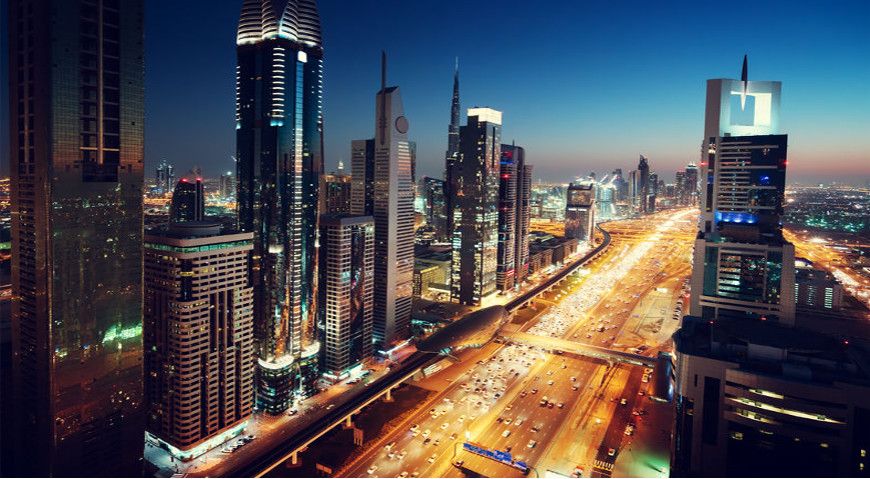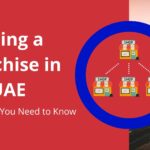Easy setup, no tax guaranteed, 100% ownership. Proven draws for the UAE free zones. Why, then, do so many entrepreneurs each year swap the safety of a free zone for speculation on the mainland?
Simply put, it’s a logical progression of many a successful business.
Right off the bat, setting up a company in one of the UAE’s 45 free zones is prudent. Over 30,000 companies currently trade from the three biggest UAE free zones alone. Inbound entrepreneurs can land in a free zone and hop on the fast-track to launch via pre-packed licenses, employee visas, and corporate bank accounts.
The paradigm works well for those who want to test the climate. However, as veterans may attest, a time comes when expansion and growth call for a DED license and migration to the mainland.
Free zone companies form an ideal starting point for UAE business. They offer the chance for fresh entrepreneurs to establish their ventures in a unique and distinct landscape, and to learn its nuances. Diversification – vital for efficiently continuing growth – and relocation are, however, restricted.
These restrictions are felt by many UAE businesses that have initially succeeded in a free zone, but wish to further capitalise on and invest in that promising start.
We can see a common thread emerging. The entrepreneur who has invested in the foundation of their UAE business through the free zone, ready to strike into new territory once armed with knowledge and initial success. With the right UAE national sponsor or company formation specialist, moving from a free zone to the UAE mainland is a shrewd and manageable move.
With the right UAE national sponsor or company formation specialist, moving from a free zone to the UAE mainland is a shrewd and manageable move.
We look at five reasons, then, to hop the fence: to graduate from the free zone and secure the continued expansion of your best ventures in the deeply profitable mainland.
1. It’s necessary for growth: After some time in a free zone, your company may be in a position to expand. One of the biggest draws of the UAE is its deep, diverse and dynamic economy. Free zones are ably positioned to tap into this wealth, but will invariably find their growth potential limited by clear-cut rules on staffing, offices and interaction with the mainland.
By their nature, free zone licenses confine firms to a particular zone and they can’t do direct mainland business. If your free zone company is to begin trading with mainland UAE entities, you’ll have to pay customs duty and engage local agents who will charge for the service.
If that all seems a bit cumbersome, you can open a mainland branch of your free zone company by registering anew with Dubai’s Department of Economic Development (DED).
Now is a good time to consider the switch. The UAE Ministry of Economy has recently announced that the restriction on foreign investors from owning more than 49% of onshore UAE companies will be partially lifted in 2018. While affected sectors are yet unconfirmed, the change to such a long-standing principle in UAE law signifies a strategic move to support future growth through foreign investment.
The change in perception that this brings counts for a lot – a move to the mainland is a powerful statement of intent that partners, clients and suppliers will buy into.
2. It enables diversification: For your free zone company, growth might mean diversifying into new products, services or sectors. For mainland companies, doing so is easy admin. In a free zone, more work is involved.
Free zone authorities write up descriptive business licenses and issue them to residents. There’s typically one named industry per license. If you wish to migrate into a new vertical, you need zone sign-off – a law with strict requirements that is regularly denied to applying companies.

For example, Dubai’s Media City Free Zone only accepts companies that work in media. It’s the same in Dubai Healthcare City (healthcare) and RAK Maritime City (maritime). If your diversification plans don’t reflect your zone, a negative response is to be expected.
Once again, the only foolproof way for a free zone business to diversify is to turn to the mainland and (re)register. Only once setup is complete and a license is granted can you proceed and diversify. On the plus side, there’s no longer a third party deciding the fate of your business.
3. It unlocks further recruitment: To live in the UAE, a person needs to be sponsored either on the basis of the ownership of a business in the UAE, or an employment contract with an employer in the UAE. It’s a common hurdle.
Where free zones add value (and indeed remove stress) is through handling the visa process and employees who are sponsored on your behalf. But because those employees are ultimately sponsored by the free zone – not by you – they’re permitted to work in that zone only. This limits roaming and the establishment of new branches.
Obtaining visas in free zones, while a smooth and straightforward process, has a hard cap. If your clearest primary investment towards greater profit and growth is through increasing headcount, you will find yourself constrained.
Visa rules in the mainland, however, are more generous. Although the number of employees you take on must correlate with the size of your office or premises, you are firmly in control of both the size of your workforce – and of your ambition.
Mainland SMEs are a growth business in the UAE. In a 2016 survey, business intelligence firm Meed found that 70% of UAE SMEs planned to recruit more staff. In fact, six percent of companies intended to hire as many as 50 people in the year ahead. That’s a lot of visas – and a solid sign of the potential on offer.
4. It gives access to lucrative government contracts: In the first half of 2017, the UAE government gave out contracts to the value of AED 1tr (USD 272.22bn). UAE state awards are worth 25% more in real terms than Saudi Arabia, the region’s biggest economy.
In the first half of 2017, the UAE government gave out contracts to the value of AED 1tr (USD 21.3bn).
Government tenders are a huge business in the UAE. In 2016 the Abu Dhabi Executive Council approved AED 17.5bn (USD 4.76bn) of spending on government projects including over AED 4bn on infrastructure, nearly AED 2bn on education and a combined AED 1.2bn on upgrades to governmental and social facilities.
The value of ongoing UAE construction projects – many of which are public-private-partnerships – is estimated to be a staggering AED 3tr. There’s the AED 24bn Aljada project, the AED 3.67bn MAG Eye, and the AED 3bn Marina Mall Abu Dhabi to name but three.
It’s far from a flash in the pan. With the UAE having secured hosting of the renowned world fair Expo 2020 in Dubai, government spending is set to increase in accordance with fresh requirements for construction and development. Ahead of Expo 2020, AED 11bn worth of contracts will be fulfilled.
The UAE is perpetually and relentlessly evolving. Obviously, getting a piece of that evolution could be life-changing. The problem is that free zone companies cannot apply. Only mainland firms can bid for government jobs.
5. It’s all about potential: If your business deals in professional services – heavy industry or international import/export – then free zones are a time-tested solution. They’ve been around since 1985 when the Jebel Ali Free Zone Authority (JAFZA) was first established. If your business has no interest in exploring the UAE mainland, then you are in the right place.
However, the UAE’s economy is a growth machine. If you see it playing even a small a role in your company’s future, then moving from a free zone to the mainland could be a gamechanger.
The well-known headline benefits of the free zones are legitimate reasons to stay: 100% foreign ownership. Guarantees against a sudden change in tax policy. Light-touch bureaucracy. While these are appealing startup and short-term features, the longer-term potential in the UAE mainland remains a powerful draw.
If your free zone venture finds itself toiling with third parties and workarounds just to get a piece of UAE business, maybe it’s time to move. There’s nothing to lose and everything to gain. The potential of mainland UAE business – now and in the future – is colossal.
If your free zone venture finds itself toiling with third parties and workarounds just to get a piece of UAE business, maybe it’s time to move.
Your time to go mainland
Free zones are fantastic places to integrate into business life in the UAE and offer a proven path towards establishing a business in the unique UAE landscape. They are by nature, however, limited in how they can expand and capitalise on initial success within this magnetic, kinetic economy.
Life beyond the free zone is full of freedom and opportunity. Perhaps 2018 is your year to hop to the mainland?
Virtuzone Mainland is dedicated to helping clients open a company on the UAE mainland, providing advice and assistance with every aspect of the company formation. To set up a consultation, please call us on +971 4 457 8200, or click here.









